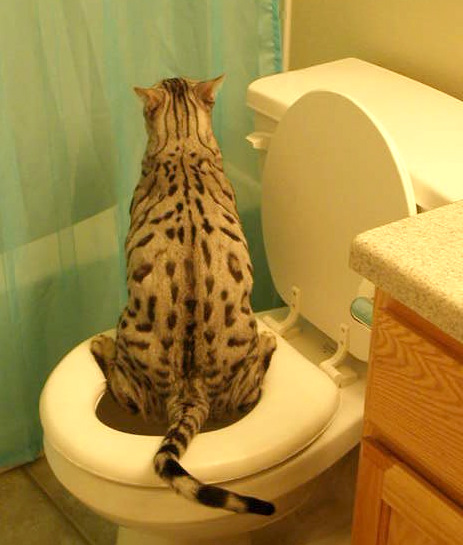The Risks of Disposing Cat Poop in Your Toilet - Preventive Measures
The Risks of Disposing Cat Poop in Your Toilet - Preventive Measures
Blog Article
They are making several great pointers related to Can You Flush Cat Poo or Litter Down the Toilet? in general in this content followed below.

Intro
As feline owners, it's necessary to be mindful of how we dispose of our feline friends' waste. While it might appear convenient to purge feline poop down the toilet, this technique can have harmful consequences for both the setting and human wellness.
Ecological Impact
Flushing cat poop presents unsafe virus and parasites into the water, posing a considerable threat to aquatic ecological communities. These contaminants can negatively affect aquatic life and compromise water top quality.
Health and wellness Risks
In addition to ecological issues, flushing cat waste can likewise present health and wellness threats to human beings. Pet cat feces may include Toxoplasma gondii, a bloodsucker that can cause toxoplasmosis-- a potentially extreme ailment, specifically for expectant females and people with damaged immune systems.
Alternatives to Flushing
Luckily, there are much safer and much more accountable methods to take care of feline poop. Consider the adhering to alternatives:
1. Scoop and Dispose in Trash
One of the most common technique of getting rid of pet cat poop is to scoop it into a naturally degradable bag and throw it in the garbage. Be sure to use a specialized clutter inside story and deal with the waste immediately.
2. Usage Biodegradable Litter
Opt for biodegradable feline litter made from products such as corn or wheat. These litters are eco-friendly and can be safely thrown away in the garbage.
3. Hide in the Yard
If you have a lawn, consider hiding cat waste in an assigned area far from vegetable yards and water sources. Make certain to dig deep sufficient to stop contamination of groundwater.
4. Set Up a Pet Waste Disposal System
Purchase a pet garbage disposal system especially developed for pet cat waste. These systems use enzymes to break down the waste, minimizing smell and ecological influence.
Final thought
Accountable animal ownership expands beyond offering food and sanctuary-- it additionally entails proper waste management. By refraining from flushing cat poop down the toilet and choosing alternate disposal approaches, we can decrease our ecological footprint and protect human wellness.
Why You Should Never Flush Cat Poop Down the Toilet
A rose by any other name might smell as sweet, but not all poop is created equal. Toilets, and our sewage systems, are designed for human excrement, not animal waste. It might seem like it couldn’t hurt to toss cat feces into the loo, but it’s not a good idea to flush cat poop in the toilet.
First and foremost, assuming your cat uses a litter box, any waste is going to have litter on it. And even the smallest amount of litter can wreak havoc on plumbing.
Over time, small amounts build up, filling up your septic system. Most litter sold today is clumping; it is made from a type of clay that hardens when it gets wet. Ever tried to scrape old clumps from the bottom of a litter box? You know just how cement-hard it can get!
Now imagine just a small clump of that stuck in your pipes. A simple de-clogger like Drano isn’t going to cut it. And that means it’s going to cost you big time to fix it.
Parasitic Contamination
Believe it or not, your healthy kitty may be harboring a nasty parasite. Only cats excrete Toxoplasma in their feces. Yet it rarely causes serious health issues in the cats that are infected. Most people will be fine too if infected. Only pregnant women and people with compromised immune systems are at risk. (If you’ve ever heard how women who are expecting are excused from litter cleaning duty, Toxoplasma is why.)
But other animals may have a problem if infected with the parasite. And human water treatment systems aren’t designed to handle it. As a result, the systems don’t remove the parasite before discharging wastewater into local waterways. Fish, shellfish, and other marine life — otters in particular — are susceptible to toxoplasma. If exposed, most will end up with brain damage and many will die.
Depending on the species of fish, they may end up on someone’s fish hook and, ultimately on someone’s dinner plate. If that someone has a chronic illness, they’re at risk.
Skip the Toilet Training
We know there are folks out there who like to toilet train their cats. And we give them props, it takes a lot of work. But thanks to the toxoplasma, it’s not a good idea.

I stumbled upon that piece of writing on How to Dispose of Cat Poop and Litter Without Plastic Bags when surfing around the internet. Do you know about someone else who is excited by the subject? Please feel free to promote it. Thank you for going through it.
Request Service Report this page